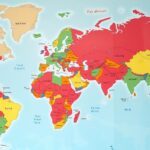Argentina’s Historic Declaration of War on the Axis Powers
Argentina declared war on the Axis powers on March 17, 1945, aligning itself with 20 other Latin American nations. This decision followed years of neutrality influenced by British pressure and internal policies. The declaration allowed Argentina to participate in the creation of the United Nations, despite mixed perceptions regarding the timing of its entry into the conflict.
On March 17, 1945, Argentina officially declared war on the Axis powers during World War II, marking a significant shift in its policy and aligning itself with 20 other Latin American nations. This declaration came after Argentina had maintained neutrality for several years, a stance influenced by British pressures to ensure continued meat exports to the UK, which relied on Argentina for a substantial portion of its meat supply.
Prior to the declaration, Argentina had isolated itself from the rest of the Americas, as many countries severed ties with the Axis and some declared war. Although a regime change occurred in 1943, and formal ties with the Axis were broken in 1944, the prevailing sentiment among Argentinians was against participating in the war. Historian Félix Luna noted that neutrality was prevalent among the populace, with few advocating for alliance with either side.
The formal declaration under Decree 6945 led to Argentina being allowed to participate in significant post-war discussions, including the San Francisco Conference which established the United Nations. The war’s context prompted local military production advancements while reflecting Argentina’s isolation from U.S. arms.
Juan Domingo Perón, a key proponent of the change in stance, recognized the need to abandon neutrality as Minister of War. He initiated the Consejo Nacional de Posguerra to prepare for post-war realities, allowing Argentina to seize Axis assets in the country, which contributed to the development of various industries.
The perception of Argentina’s neutrality during the war has persisted through generations, although the late declaration of war was met with mixed feelings. Luna characterized Argentina’s position as a “Creole compadrada,” suggesting a unique blend of independence and pride, despite criticisms regarding the timing of its entry into the war.
In summary, Argentina’s late declaration of war on the Axis powers during World War II represents a significant political and historical moment. Influenced by external pressures and internal policy, the shift ultimately permitted Argentina to engage in important post-war processes, leading to its involvement in the founding of the United Nations. Despite the nation’s long-standing perception of neutrality, the ultimate decision showcased a blend of national pride and strategic response to global developments.
Original Source: batimes.com.ar








Post Comment